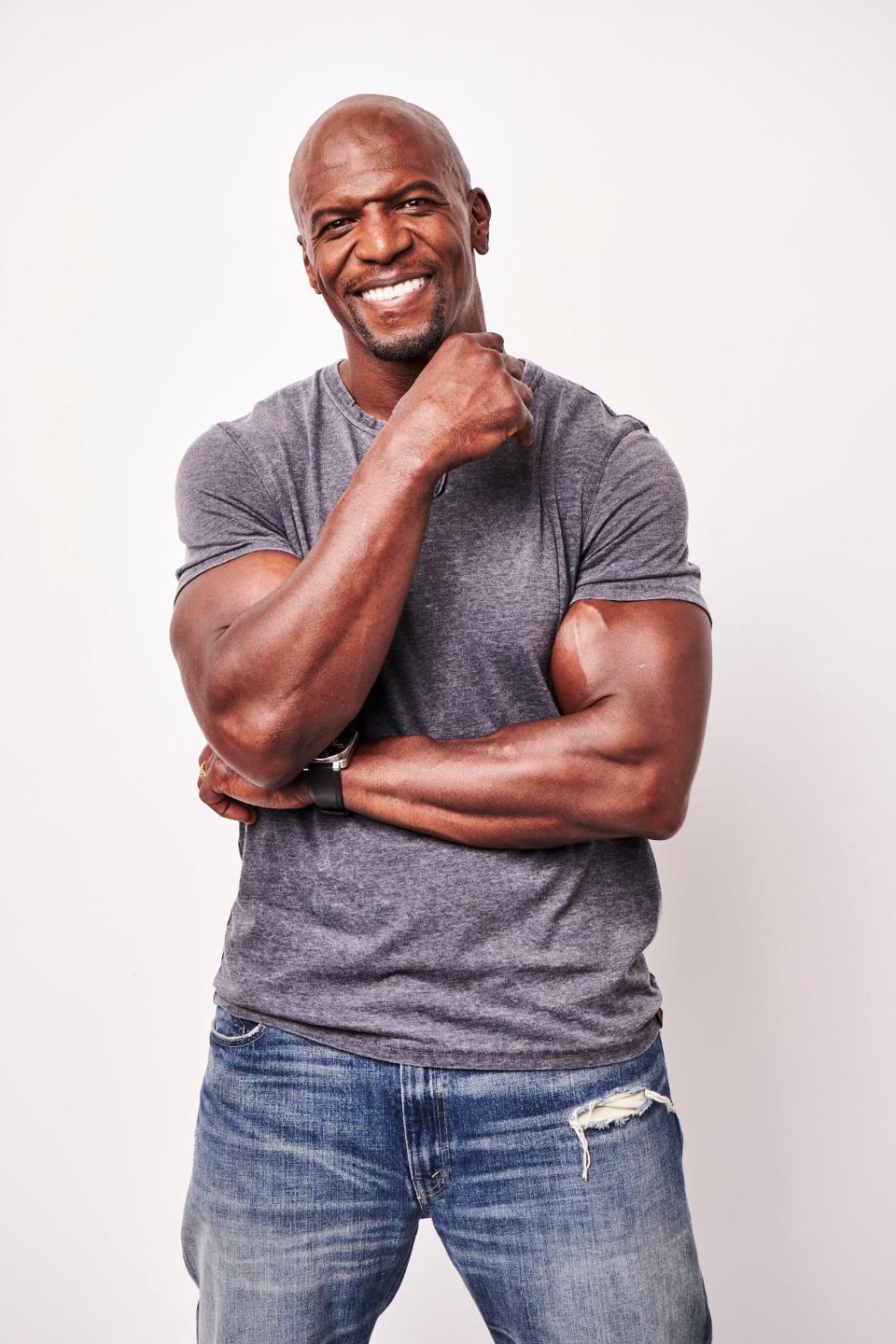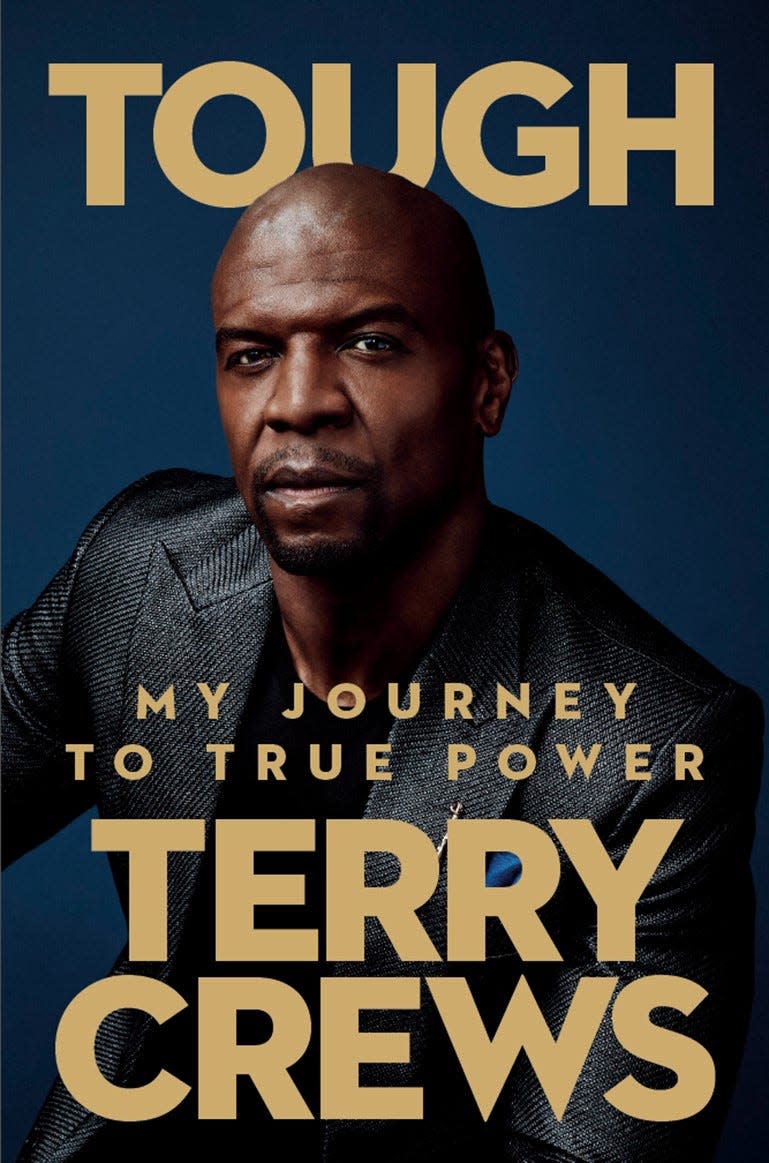Terry Crews had a 'false idea' of masculinity: 'I walked around this world with my chest puffed out'
- Oops!Something went wrong.Please try again later.
When actor and former NFL player Terry Crews declared #MeToo in a 16-part Twitter thread in 2017, it was a significant moment for the movement. Crews was one of a handful of high-profile male survivors who stood with the millions of women sharing stories of sexual violence. While Crews said his tweets were cathartic, he also said the reaction to his disclosure underscored the unique challenges male survivors face. After sharing that he was sexually assaulted by a high-level Hollywood executive, Crews was dragged online for "not being a man." He was called a "simp," told his muscle "ain't meant for nothing," and asked how he could let an "old white man" fondle him.
But Crews said when he spoke publicly about his sexual abuse and ultimately held his perpetrator accountable, it was the first time in his life he felt truly powerful. It wasn't the brute strength that propelled him on the football field or the retaliatory beating he gave his abusive father one Christmas. It wasn't the rage that spilled into his marriage or into his parenting. This power seemed to come from someplace different. It was careful, controlled and used for good.

In his new memoir, "Tough: My Journey To True Power," Crews challenges masculinity that demands silence around perpetration, that's defined primarily by toughness, which Crews grew up believing was elemental, and which he now sees as manufactured. It was masculinity he saw modeled by a father who beat his mother, by neighborhood peers who used violence to instill fear and fellow football players who treated women as property. This is the masculinity he internalized, that poisoned his relationships with his wife, his eldest children and in many ways himself.
Masculinity is looking less toxic: Is it serious change?
"I had grown up and lived my entire adult life with a false idea of what it meant to be tough. I walked around this world with my chest puffed out like I was the alpha male. I saw myself only as strong and powerful. In fact, I was weak and powerless, and everything I did was driven by shame, insecurity, and fear," he wrote.
#MeToo: Survivor in Brock Turner rape case wants you to know more than her name
Viola Davis is raw in new memoir: What we learned reading her book
Crews' book is a searing repudiation of toxic masculine ideals – an exercise in the very vulnerability the culture suggests is the antithesis of manhood. His book delves into some of his life's most painful and shameful moments in an effort to clarify precisely how these ideals shaped his becoming. He recounts how his father rebuffed his gentle kiss on the cheek, showing him men don't express love. He shares how his burgeoning manhood became a threat to his own mother, who when he was around 11 years old demanded he pull down his pants so she could inspect his genitals for pubic hair. He talks about his addiction to pornography, which led to an episode of infidelity, threatening his relationship with his wife, which he holds most dear.
USA TODAY spoke with Crews about his book, his evolving views on masculinity, and the ways in which he still strives to be the most authentic version of himself:
Danny Trejo: His new memoir, toxic masculinity and how his daughter 'helped me change my life'

Question: This book is vulnerable, which is the core way it rejects traditional masculinity, or as some say, "toxic masculinity." What part of the book was most difficult to write or made you feel the most vulnerable?
Terry Crews: When I talked about the issue with my mother, when I was young and how she made me pull down my pants to see if I'd hit puberty. It was wild because I never envisioned actually being that transparent. It was so difficult because I love my mom and, to be honest, I didn't want her to go down as having done something so heinous. But at the same time, it was abusive. This is the stuff that came out in therapy, the stuff that I really had to address.
Q: When you were growing up, showing weakness could have real consequences. It wasn't just that you felt you couldn't show weakness because that's not what a man does, you couldn't show weakness because that could make you a target. How would you advise young people who are growing up as you did to be authentically who they are, while also facing such a strong mandate in their communities to be tough?
Crews: Find your tribe and find your people. One thing that saved me was I did have my best friend and we talked things out together. We kind of parented ourselves. But I have to say a lot of my posturing was necessary. Thank God I didn't get attacked mainly because I played sports and a lot of the gangs left me alone. A lot of times you don't have a choice, especially when you're super young, but as you get older, you always can go a little farther out and that was my choice. I just would encourage people to find people at their church, find people at their school, people that they can trust. When you express the need, a lot of times that need will get met, but sitting in silence, you're guaranteed to have no help.
Q: Your dad's violence loomed large in the book, but I found his rejections of your affection to be among the most painful parts, especially the kiss you gave him when you were just a child, the way he acted as though there was something fundamentally wrong with that affection. How is your physical relationship with your son different than yours was with your father?
Crews: Oh, it's night and day. Let me tell you. I hug my son. I kiss my son. It's a really, really wonderful relationship because I am about finding out what my son wants. A few years ago, we went viral because I remember going home and my son wanted to play video games, and I didn't understand them. I was almost going to jump into that mode of, "Yeah. You kids playing those games," that old thing. But all of a sudden I realized, wait a minute, this is an opening. And so I said, "How about we build a computer together?" And my son, to this day, we never forget that. We're closer than ever.
Q: You say at one point that part of "proving you're a man" is covering up for other men, especially when they do "dumb" or harmful things. Where are you still seeing this kind of complicity around you, and do you think this cultural demand, men protecting other men, is changing?
Crews: Well, first of all, I don't hang in that circle. So lately I don't. But I felt the pull a lot in college, where four guys are going to do something and no one is going to stop them. It's about competition.
The analogy that I have is, you're standing on a beach in California and all these guys are like, "I bet you I could swim to Hawaii." And people take that challenge and they jump in the water. A wise woman is on the side going, "What are you doing?" And these guys will start swimming, but everybody drowns because you can't swim to Hawaii. You just can't.
This is what guys do and no one wants to look like the person who backed down. We've talked ourselves into this picture of ultimate manliness, being this superhero. And the biggest thing about this book is me admitting how mortal I am. Like, I'm a mortal man. Fallible. I could die. But doing these crazy things, my wife had to warn me like, "Yo, you could die doing this stuff. You punching people and jumping around. You go up on the wrong guy, it could be over." Before I wouldn't listen to my wife simply because she was a woman. And it was so ridiculous. Everything that's in this book that I learned, she was already telling me. But I wouldn't listen.
Q: What remains a challenge for you as you strive to be the most authentic version of yourself?
Crews: You think you're over things and then you hear something and you're affected. Sometimes I still feel insecure about who I am. At times I do feel scared. And if someone calls me on it, "Hey, you scared?" I immediately want to match that challenge. This is all part of the therapy. It's all part of not getting baited because you realize a lot of these things are bait and manipulative to pull you in certain directions. Now I can acknowledge when lines are being crossed. Now I can choose which way I want to go.
This article originally appeared on USA TODAY: Terry Crews' new memoir is a revealing examination of masculinity

